One of the many tasks Venetian noblemen could be charged with, was presiding over the state-run auctions of the unredeemed pawned goods of debtors, called the incanto.
The image of Venice as Justitia in the back shows that the proceedings were of a state tribunal.
Taverns and inns also served as pawn shops, to ensure common people too had access to credit.
Source: Gli abiti de veneziani di quasi ogni età con diligenza raccolti e dipinti nel secolo XVIII, by Giovanni Grevembroch (1731–1807), which in four volumes contains over six hundred watercolours of how Venetians dressed in the 1700s.
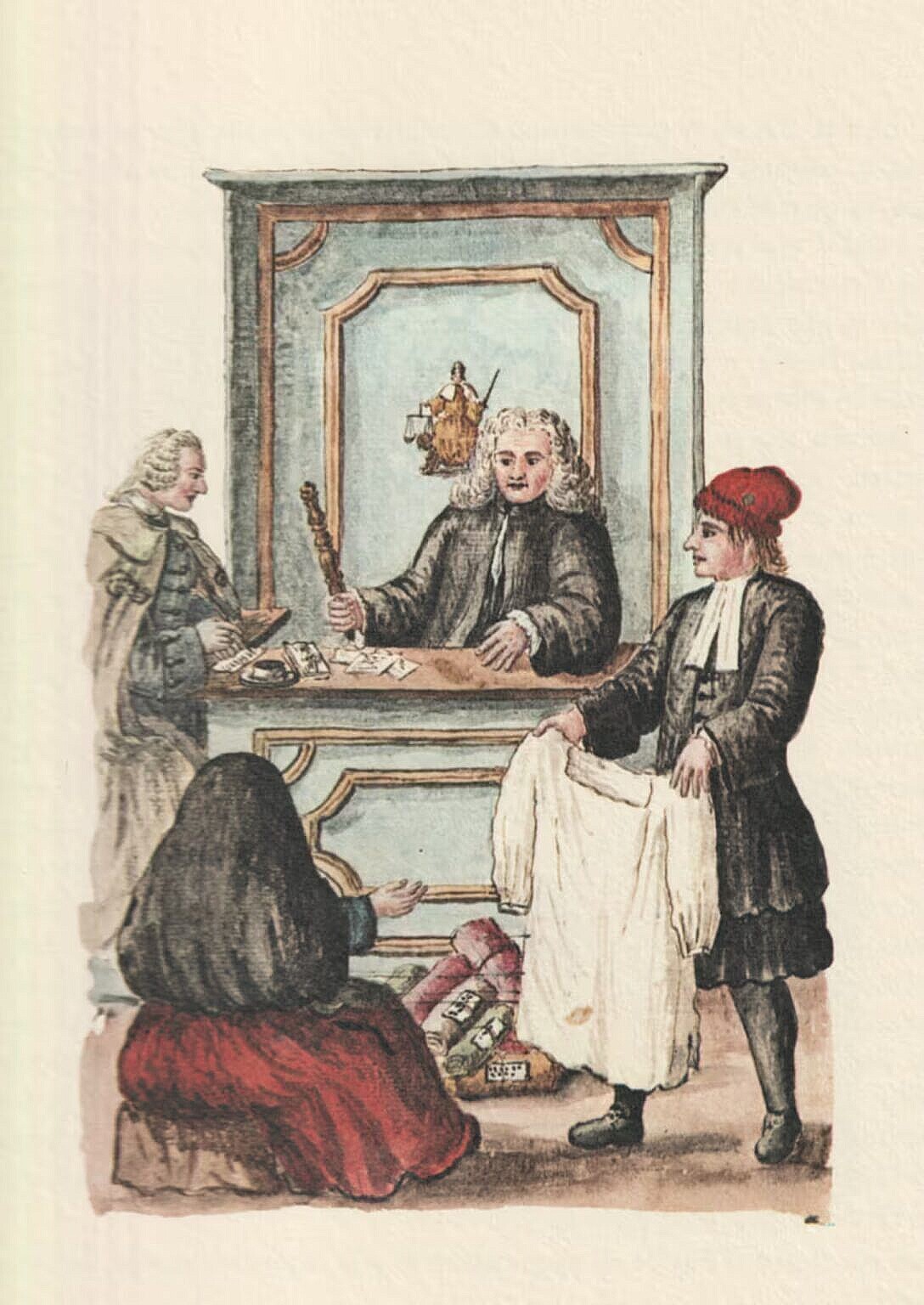
Noble as Auctioneer
Worthy of Public Sovereign Provisions is the matter concerning the common people, who, being poor in money, seek day by day a way to nourish themselves through any kind of objects which, to them, is of little value, and it is equally the effect of benevolent Justice that those who supply them with food are invigorated so that they may provide other Provisions for the future.
It was therefore assigned to the sellers of bread and of wine, who were to accept as collateral all that was presented to them, giving half in provisions and the other half in money so that everyone remains satisfied according to their respective needs. In this way, the immediate urgency being met, the unfortunate person, strengthened by industry or labour, after three months collects, returns, or cedes his belongings to auction, which is held in the presence of the Magistrates, who, overseeing such a delicate matter, record any excess beyond what is required to be handed over to the owners.
These Auctions take place on the days prescribed for public viewing in the Squares of Rialto and San Apollinare, where anyone who competes to take the purchase immediately pays the money, and where, if the collateral was lost, compensation is established for the damage due to negligence or collusion. Monday, Wednesday, and Friday are the days set for settling accounts with anyone. Using the method mentioned above, the matter of collateral placed in the Ghetto Banks is also settled, after a little more than a year, as will be explained elsewhere.
To the Most Esteemed Mr Tommaso Trieste Canon of Asolo, and our most special Confidant, we dedicate this dissertation.
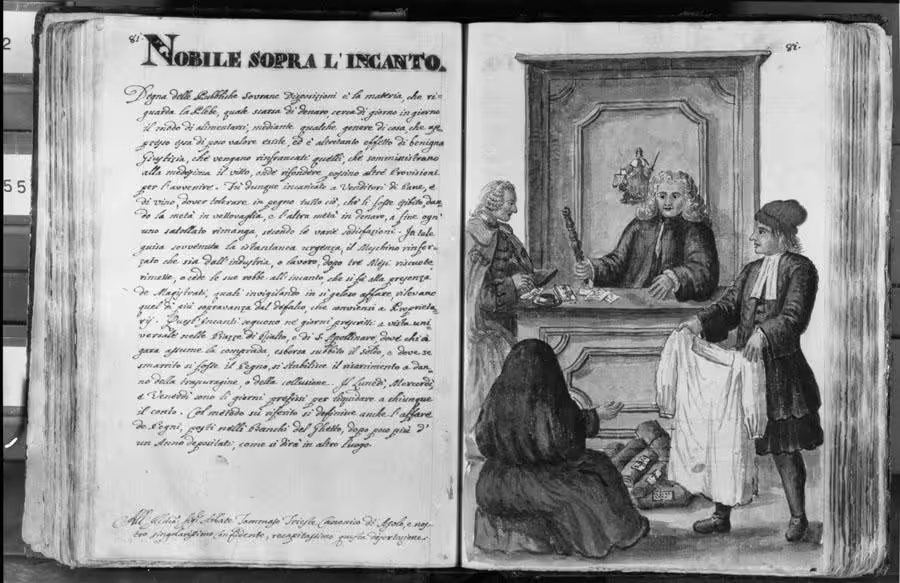
Original Italian text
Nobile sopra l’incanto
Degna delle Pubbliche Sovrane Disposizioni è la materia, che riguarda la Plebe, quale scarsa di denaro, cerca di giorno in giorno il modo di alimentarsi, mediante qualche genere di cosa, che appresso essa di
poco valore esiste, ed è altretanto effetto di benigna Giustizia, che vengono rinfrancati quelli, che somministrano alla medesima il vitto, onde rifondere possino altre Provisioni per l’avvenire.Fù dunque incaricato a Venditori di Pane, e di vino, dover tolerare in pegno tutto ciò, che li fosse esibito, dando la metà in vettovaglia, e l’altra metà in denaro, a fine ogn’uno satollato rimanga, secondo le varie sodisfazioni. In tale guisa sovvenuta la istantanea urgenza, il Meschino rinforzato che sia dall’industria, o lavoro, dopo tre mesi riscuote, rimette, o cede le sue robbe all’incanto, che si fà alla presenza de Magistrati, quali invigilando in sì geloso affare, rilevano quel di più sopravanza dal defalco, che conviensi a Proprietarij.
Quest’Incanti seguono ne’ giorni prescritti a vista universale nelle Piazze di Rialto, e di S. Apollinare, dove chi a gara assume la comprada, esborsa subbito il Soldo, e dove se smarrito si fosse il Pegno, si stabilisce il risarcimento a danno della trascuragine, o della collusione. Il Lunedì, Mercordì, e Venerdì sono li giorni prefissi per liquidare a chiunque il conto. Col metodo sù riferito si definisce anche l’affare de Pegni, posti nelli Banchi del Ghetto, dopo poco più d’un Anno depositati come si dirà in altro luogo.
All’Ill.mo Sig.e Tommaso Trieste Canonico di Asolo, e nostro singolarissimo Confidente, recapitassimo questa disertazione.
Grevembroch (1981), vol. 1, p. 81.
Related articles
Bibliography
- Grevembroch, Giovanni. Gli abiti de veneziani di quasi ogni eta con diligenza raccolti e dipinti nel secolo XVIII, orig. c. 1754. Venezia, Filippi Editore, 1981. [more]


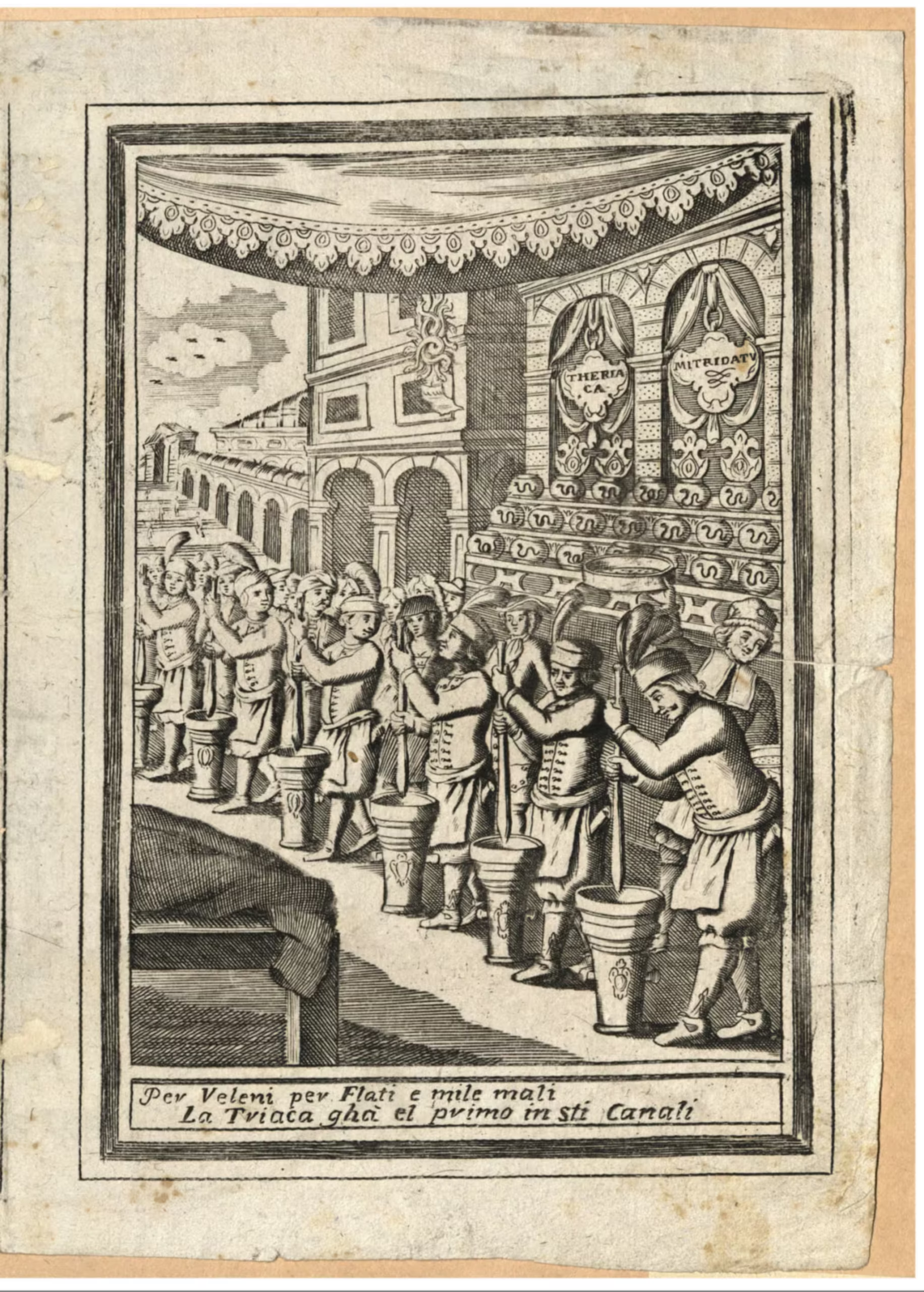
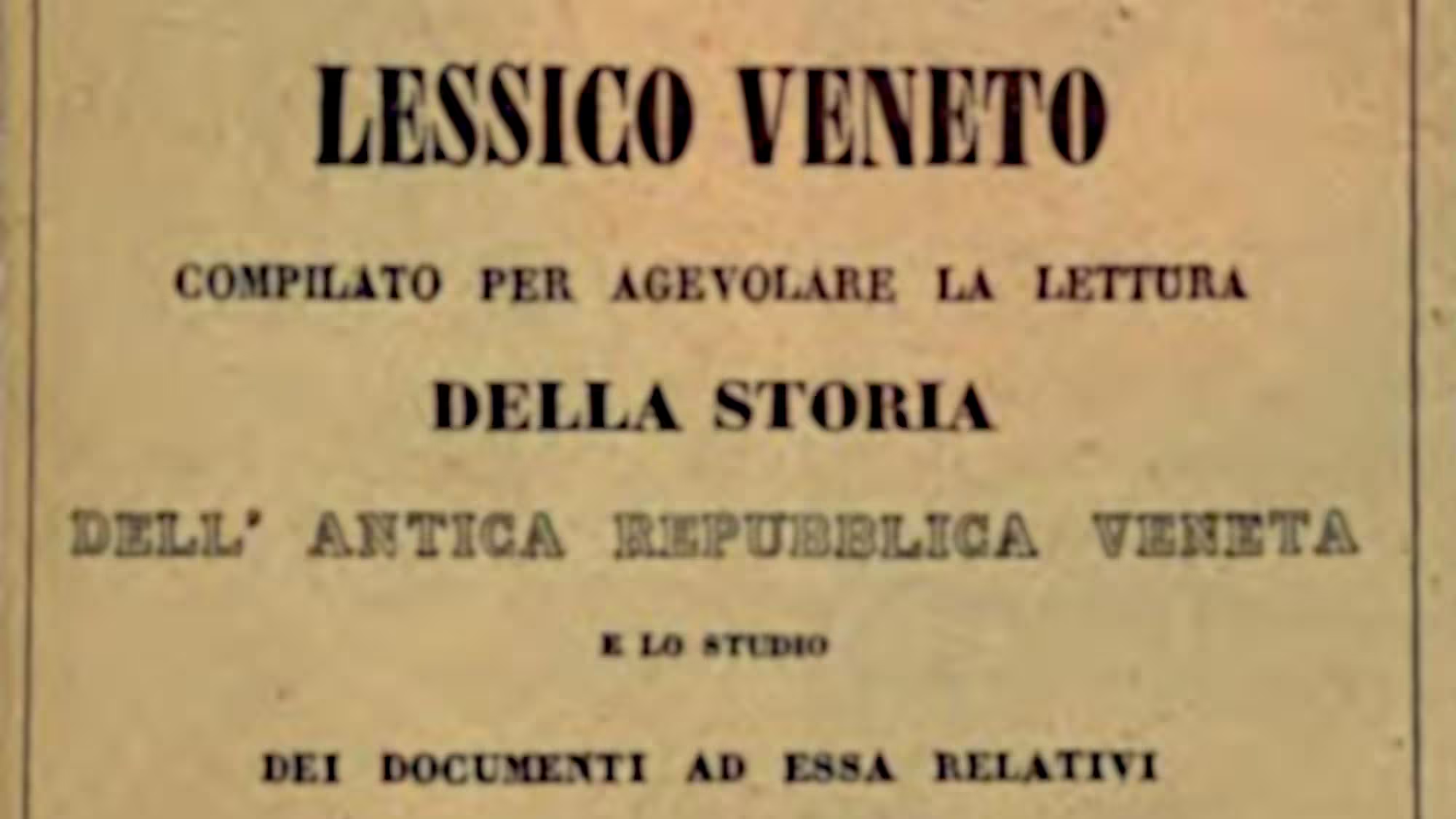
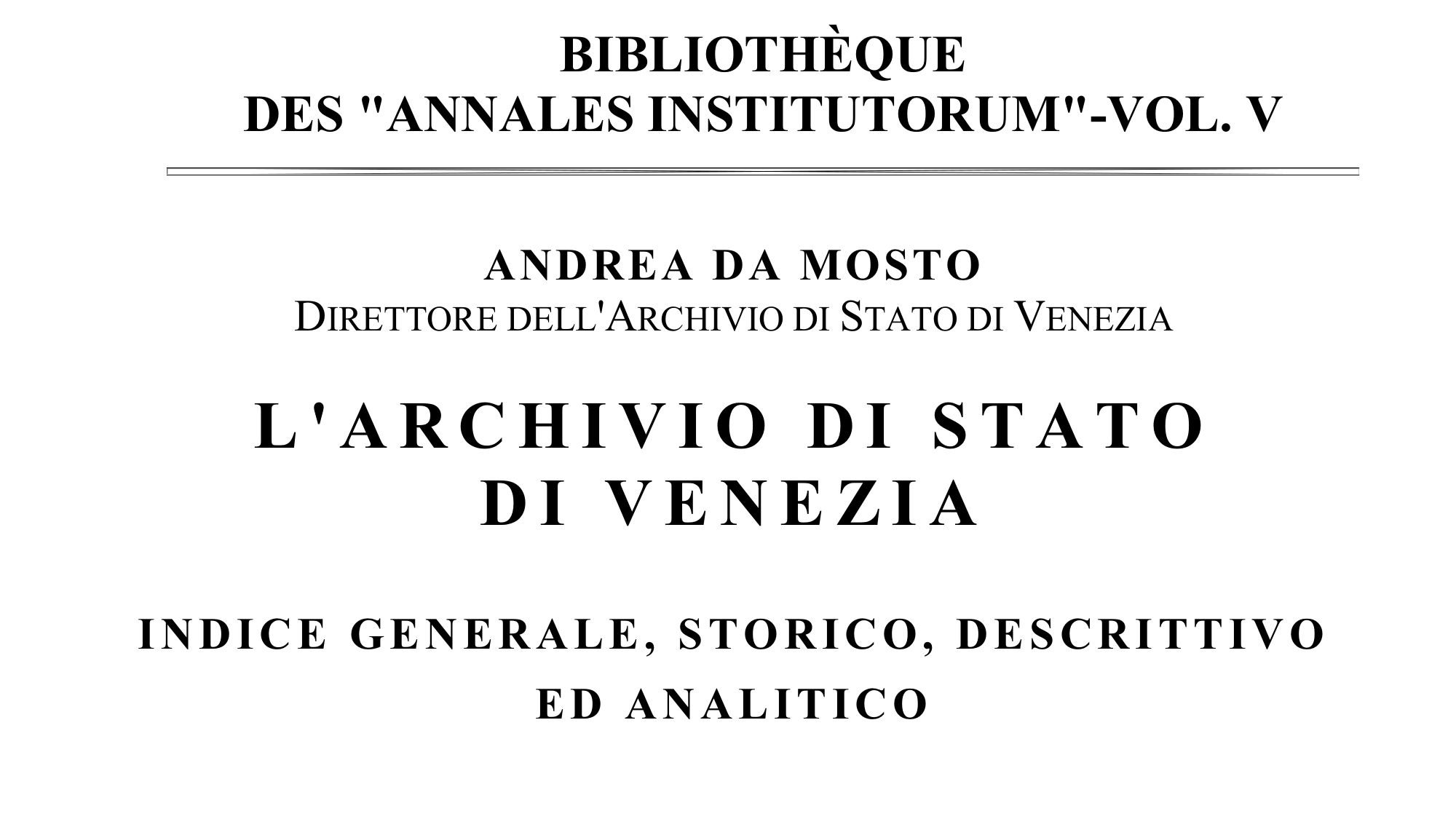
Leave a Reply